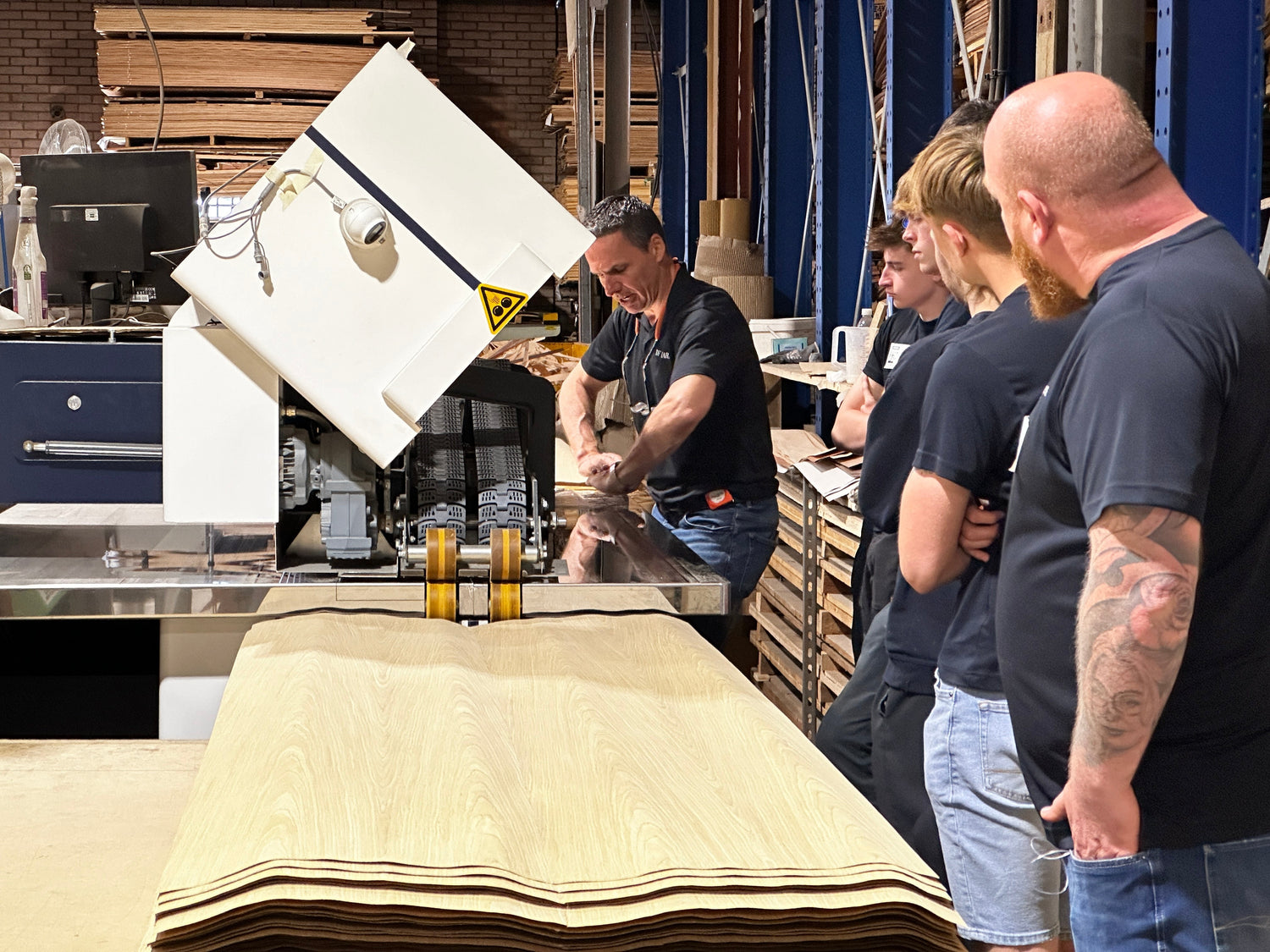The terms "leaf of wood veneer" and "layon" are related to veneering, but they refer to different stages and forms of the material:
1. Leaf of Wood Veneer
- A leaf is a single, thin slice of wood veneer.
- It is typically cut from a log using methods like rotary cutting, slicing, or sawing.
- Leaves are usually around 0.5mm to 1 mm thick.
- Each leaf retains the natural grain and figure of the wood.
- Leaves are raw and unassembled — they're the basic units used to create veneer sheets or patterns.
Analogy: Think of a leaf as one page from a book — unbound, single, and part of a larger set.
2. Layon
- A layon is a pre-assembled sheet of veneer made by joining multiple leaves edge-to-edge.
- The leaves are matched (e.g., book-matched, slip-matched) to form a specific visual pattern or symmetry.
- Layons are ready for pressing onto a substrate like MDF or plywood.
- They are often trimmed to standard sizes (e.g., for door panels, furniture tops).
Analogy: A layon is like a full sheet of wallpaper made from smaller strips carefully arranged to form a design.
Summary
| Feature | Leaf of Veneer | Layon |
|---|---|---|
| Unit | Single, thin slice | Multiple leaves joined together |
| Use | Raw material | Pre-assembled veneer sheet |
| Assembly | Unmatched | Matched and glued |
| Application | Needs further processing | Ready for pressing |




Commenta
Nota che i commenti devono essere approvati prima di essere pubblicati.
Questo sito è protetto da hCaptcha e applica le Norme sulla privacy e i Termini di servizio di hCaptcha.